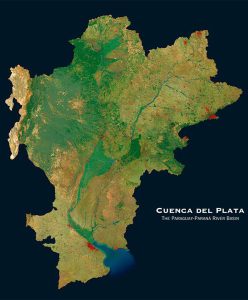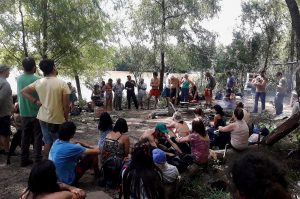XR Workshop #3: UI Design with Figma

Join HRC Anthropocene XR Lab in our online workshop [UI Design with Figma], #3 of the XR workshop, seminar, and hackathon series! The keynote speaker Qingyang He, Media and Arts major from the class of 2024, will introduce the Figma interface and two popular features of Figma for UI design, vector networks and gradient mask. She will also present a UI case study of lightweight drawing softwares and explain the creative applications of UI design principles.
Time: July 14, 8-9pm China time
Zoom: 918 3678 2672
Passcode: 172288
About the Anthropocene XR Lab: we focus on projects that explore both living and hypothetical scenarios of human interactions with the environment using XR technologies. We are interested in how, in combination of physical and virtual environment, we can expand our understanding of human beings and nature. For more information, please visit https://sites.duke.edu/dkuhumanities/projects/anthropocene-xr-lab/.
人文研究中心旗下的人类世XR实验室将举办XR(VR/AR)研讨会及黑客马拉松活动系列的第三场线上工作坊:【使用Figma设计UI界面】。来自 DKU 2024 媒体艺术专业的主讲人何清扬将介绍Figma界面的使用,以及UI设计中最常用到的Figma两大功能突破:矢量图标绘制和渐变效果遮罩。她还会为大家带来轻量化绘图软件UI设计的案例分析,并阐释案例中的设计法则能怎样被运用于创意实践。
Casa Río: Biocultural citizenship and soy extractivism from Argentina to China
Humanities Research Center’s Citizenship Lab proudly presents Casa Río: Biocultural citizenship and soy extractivism from Argentina to China
Project members: Dr. Robin Rodd (Anthropology), Aisha Shen (student researcher)
The intensification of global warming and the slow rate of effective state-led efforts to reconfigure economies and socio-cultural systems away from unequal growth and wasteful consumption, have driven communities around the world to imagine ways of living justly with each other and other life forms.
 This project combines ethnographic analysis and creative collaboration with Casa Rio to explore ways that citizenship and justice are being reconceived in biocultural terms. Over the last decade, Casa Río: Laboratorio del Poder Hacer (River House: Building Power Lab, https://www.casariolab.art/ ) has developed a spectrum of projects involving advocacy for social and ecological justice, communication and community building (https://territorios.casariolab.art/home), policy development, mapping (https://mapa.casarioarteyambiente.org/) and other visual products (https://territorios.casariolab.art/exhibiciones/). A primary aim of Casa Rio is to develop biocultural forms of civic engagement tied to understanding the coevolution and co-dependence of human, plant and animal ecologies in the Rio Paraná, one of the world’s largest wetlands (https://territorios.casariolab.art/).
This project combines ethnographic analysis and creative collaboration with Casa Rio to explore ways that citizenship and justice are being reconceived in biocultural terms. Over the last decade, Casa Río: Laboratorio del Poder Hacer (River House: Building Power Lab, https://www.casariolab.art/ ) has developed a spectrum of projects involving advocacy for social and ecological justice, communication and community building (https://territorios.casariolab.art/home), policy development, mapping (https://mapa.casarioarteyambiente.org/) and other visual products (https://territorios.casariolab.art/exhibiciones/). A primary aim of Casa Rio is to develop biocultural forms of civic engagement tied to understanding the coevolution and co-dependence of human, plant and animal ecologies in the Rio Paraná, one of the world’s largest wetlands (https://territorios.casariolab.art/).  The Paraná wetlands connect people, economies and ecologies in Argentina, Paraguay, Brazil, and Bolivia, providing irrigation and transport for the largest soy producing region on earth (the so called ‘republic of soy’). The Paraná has also become a flashpoint in Argentina for thinking about the relationship of ecological sustainability to social justice, and both in relation to accelerating climate change and extractive industry.
The Paraná wetlands connect people, economies and ecologies in Argentina, Paraguay, Brazil, and Bolivia, providing irrigation and transport for the largest soy producing region on earth (the so called ‘republic of soy’). The Paraná has also become a flashpoint in Argentina for thinking about the relationship of ecological sustainability to social justice, and both in relation to accelerating climate change and extractive industry.
This DKU-Casa Rio collaborative research project builds on and explores two areas of Casa Rio’s work: mapping extractivism and reconceptualizing biocultural modes of citizenship.
Mapping extractivism: The metabolic circuit of soy from Argentina to China